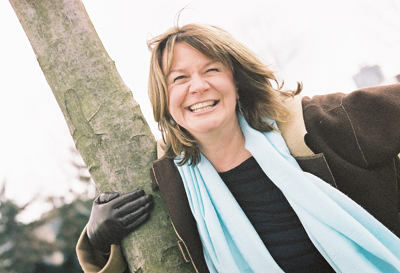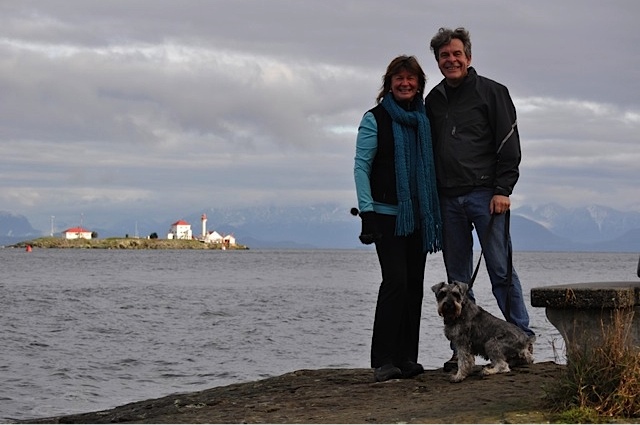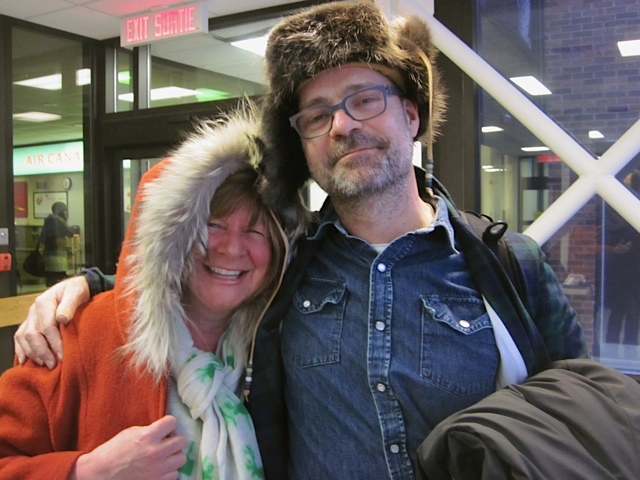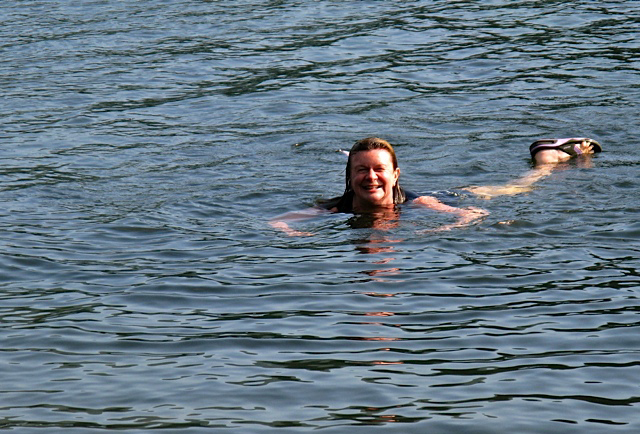Shelagh Rogers, CBC Radio host-storyteller-healer
Hear the latest podcast with this Kickass CanadianRecorded: March 11, 2013
“I see our country as a place of refuge and opportunity, and I see it as a land of many stories… I think that we can actually reset the narrative and make it much more complete.”

My interview with Shelagh Rogers was one of the longest I’ve had for this website, but that didn’t stop it from flying by all too quickly. It’s incredibly easy to get lost in her stories; she flows from the fascinating to the profound to the humourous, gliding along on her clear, warm voice, colouring each subject with the beautiful metaphors and descriptors that only a gifted artist could conjure so effortlessly. Her laugh makes frequent guest appearances, and her enthusiasm and compassion never leave the room.
Listening to Shelagh, it feels like the most natural thing in the world that she’s made a life out of stories—sharing her own, exploring those of others and making a concerted effort to uncover the truth behind Canada’s.
Prologue
In the words of Ottawa, Ontario’s Catherine Jensen, who sang with Shelagh in the Ottawa Choral Society and recommended her as a Kickass Canadian, Shelagh is “a Canadian treasure.”
After getting her start hosting campus radio at Queen’s University (where she studied Art History) and a country music program at Kingston, Ontario’s CKWS, Shelagh was quickly picked up by CBC Radio in 1980. Right out of the gate, it was clear she had something special to offer. Her work on Mostly Music earned a 1983 ACTRA Award for Best Host/Interviewer. The following year, she moved to Toronto, where she worked on a variety of CBC shows, including The Arts Tonight and Basic Black, as well as Morningside alongside Canadian legend Peter Gzowski. She also hosted the first post-Elwy Yost season of Saturday Night at the Movies, which she refers to as a learning experience that reinforced her deep love of radio. (“Radio is much more available to the imagination than television is.”)
The chapters between Shelagh’s childhood in Ottawa and her current life on Gabriola Island, British Columbia (where she lives with Charlie Cheffins, her husband of nearly 14 years, and their beloved schnauzers Sam and Strauss, and hosts CBC’s The Next Chapter) are filled with incredible stories of generosity, accomplishment, discovery, bravery and growth. They’re rich with the arts, and include some of the most wonderful characters Canada has to offer.

With Charlie and Sam on New Year’s Eve 2011, Gabriola Island, B.C.
Not surprisingly, Shelagh has met quite a few Kickass Canadians along the way, all of whom adore her.
“She’s one of the most genuinely warm people I’ve ever met. Her smile makes folks smile before she even says a word… You can hear that smile in her voice.” —Kickass Canadian and CBC Radio host Amanda Putz
“Shelagh is the best: pure joy and a model for all Canadians and for people in general. She’s so giving and sensitive, with the most welcoming laugh ever invented.” —Kickass Canadian and filmmaker Ryan J. Noth
Notes on reconciliation
Shelagh also knows Kickass Canadian Rob Baker of The Tragically Hip, whom she’d seen just days before our interview. They attended the Great Moon Gathering in Fort Albany, Ontario, an annual “bringing together of the Cree who live in Western James Bay Cree communities.” She writes (wonderfully) about the event on The Walrus Blog, but in a nutshell, she describes it to me as a late winter celebration in which educators from each of the eight Omushkego Education Authorities gather for talks on restorative justice, and workshops on moccasins, sweat lodges, the Cree language and more.

With Gord Downie at the Timmins, Ontario airport, heading home after the Great Moon Gathering, February 2012
She’s clearly still entranced by the event, joyfully and vividly recounting her talks with writer Joseph Boyden, The Tragically Hip singer Gord Downie and “Bobby” Baker. But what seems to have struck her most is Grand Chief Stan Loutitt’s session on Treaty No. 9, which was signed in the early 1900s in response to petitions from the northern Ontario Cree communities regarding settlement and development.
“(The Grand Chief) did an amazing workshop about a new diary that’s been discovered, which actually supports what the Cree understood Treaty 9 would represent,” she says. “Because (the Cree people had) an oral culture and nothing was written down, and the treaties were signed with Xs on behalf of the First Nations, the government shaped the Treaty to what they wanted it to be. But (George MacMartin, Ontario’s commissioner for the negotiations) wrote a diary, and it actually refers to what the Cree had been saying should be part of the treaty since it was signed in 1920.”
This matter of setting the record straight, of giving a voice to those who haven’t been heard, is very near and dear to her. For the past four years, she’s gotten progressively more involved in reconciliation projects. “I really love the opportunity to be in the company of Aboriginal people,” she says. “I also love finding out about the real history of Canada. The more I discover, the more shameful I realize it is and the more colonial I realize it is… The settlers would not have survived without the assistance of the Indigenous people.”
The importance of exploring reconciliation was introduced to Shelagh’s story in 2008. She was working on Our Home and Native Land, a series she’d created with “cherished producer” Sue Campbell for Sounds Like Canada, which examined Indigenous issues. “Both things to triumph, but also things that need examination in this country,” she says. In every interview she conducted, the residential schools came up. The word “intergenerational” was also mentioned frequently.
So Sue arranged for Shelagh to interview John, Lillian and Victoria Jones, a father-daughter-granddaughter trio representing three generations of a First Nations family. Their talk took place in April 2008, about two months before the official Statement of Apology was issued by the Government of Canada.
After speaking with the Jones family, Shelagh realized not only the profound impact the legacy of residential schools has left, but also that she still had very little understanding of what had really taken place. Moved by the Jones’ story, and by her deepening friendship with the family, she committed to further exploring the issue and trying to help reconcile our past.
“I think the more time you spend in the company of Indigenous people, the more you realize that we’re all people and there’s much more that brings us together than divides us,” she says. “But really, what does divide us is our history and what we do about that. I think we have to make sure that the curriculum (addresses our true history) in every school across the country… Our history of how we are right now is still very recent, and the deeper history is there. It does exist and there’s so much evidence for it. We have to find those stories and bring them forward.”
Developing the plot
Because of her exemplary efforts to draw out such stories, Shelagh was made an honorary witness for the Truth and Reconciliation Commission of Canada (TRC), and received the NCSA Award from Native Counselling Services of Alberta for striving towards reconciliation between Indigenous and non-Indigenous people. She speaks on the matter whenever she can, which, she says, often means speaking in church basements and community halls.
She also hosts an ongoing series of “ad hoc” dinners that “bring Aboriginal and non-Aboriginal people together over food—not necessarily with an agenda, just to get into the same room and let’s just talk to each other, let’s just connect.” So far, the dinners have mostly taken place either at Shelagh’s Gulf Island home or at Joy Kogawa House in Vancouver. But the feast is moveable.
At one of the dinners, which she organized with her good friend Todd Wong, each guest was asked to talk about why they accepted the invitation. Shelagh recalls an Anglican minister who felt it was important to understand the Anglican Church’s connection to residential schooling, and how that factored into being a missionary across Canada. There was also a woman who was developing an educational video game that allowed the player to assume the role of a child in a residential school. “You would be losing if you spoke your own language, you would be winning if you spoke English,” says Shelagh.
She’s very proud of an upcoming book she co-edited for the Aboriginal Healing Foundation (AHF). Called Speaking My Truth, it’s a collection of essays and reflections about residential school and reconciliation, which she says is “gorgeous” and full of essays that are “very accessible and wide-ranging.”
When Shelagh speaks about Indigenous affairs and the possibility of reconciliation, she’s aware that she’s approaching the issue from a non-Indigenous perspective. But the more time she spends with Indigenous people, the more she realizes that she still has something to offer. “We all have our own experiences,” she says. “I think it’s important to hear from someone from the non-Aboriginal side talking about it with passion, even if, as I’ve realized, I have miles to go and so much more to learn. I’m very humbled by that. This is a Canadian issue, not just an Aboriginal one.”
Finding the story arc
Reconciliation is top of mind for Shelagh. But she still finds ample space in her heart for a great number of other passions. The arts, for one, which she calls “an expression of our souls” and “where true freedom of expression takes place in this country.” And swimming. In the cold.
Shelagh, who has twice taken the plunge in the Arctic with Adventure Canada, was swimming in Bonne Bay, Newfoundland in 2010 when she had a chilling idea. She was in town to host the annual Writers at Woody Point festival, and was splashing around with Jeff Anderson, Parks Canada’s Field Unit Superintendent in Western Newfoundland and Labrador. They were chatting about how to celebrate the upcoming Parks Canada Centennial, and she suggested filling Bonne Bay with swimmers. Jeff reminded her of the mako sharks, so she revised her plan: “Why don’t we take a group of writers from the south and take them to some northern park?”

Swimming in the Margaree River, Cape Breton, N.S. 2008
A few months later, in early 2011, Jeff took her up on the idea. He tasked her with choosing five writers, and that summer, she headed to Northern Labrador’s Torngat Mountains National Park with scribes Joseph Boyden, Sarah Levitt, Noah Richler, Rabindranath Maharaj and Alyssa York in tow. The idea was to do a radio documentary for The Next Chapter that would explore “what kind of stories they would write based on their experience in a landscape that was alien to them, in this Inuit homeland,” says Shelagh. But Parks Canada added a film crew to the mix to capture the region’s stunning visuals, and that’s where the National Parks Project (NPP) team came in.
Shelagh met Kickass Canadian Geoff Morrison at a conference for the 125th anniversary of Banff National Park. He’d shown her some of the films from NPP, which he co-produced with Kickass Canadians Joel McConvey and Ryan J. Noth, and she was blown away. (“Their work is so beautiful.”) She was quick to recommend them as the film crew for her northern writerly adventure, and the project officially evolved into a documentary film called Northwords, which is scheduled for release later this year.
The northern exposure provided her with one of her most treasured experiences: namely, the moment when she, Joseph Boyden, Noah Richler and sound recordist Paul Aucoin leapt off an iceberg and into the north Atlantic. “It was incredible,” she says. “I would live that over again in two seconds, because you’re just so invigorated. There had been a seal on the iceberg moments before, and we got off our boat and onto the iceberg and jumped into the water. It just felt so good and I actually really like the sense of the bracing cold. It’s just so energizing. I’ve never felt so alive in my whole life.
“I think that’s part of (why I love swimming); it’s a shortcut to really feeling alive. I get into the water and everything falls off. And it helps to keep the dragon away, which is very important to me.”
The dragon she’s referring to represents her ongoing challenge with depression.
Recurring themes
Shelagh has spoken openly about her experiences with mental illness, both privately and publicly. Her courage and frankness earned her a 2008 Transforming Lives Award from the Centre for Addiction & Mental Health (CAMH), a 2010 Hero Award from the Mood Disorders Association of Ontario (MDAO) and a 2010 Mental Health Voices Award from the Canadian Mental Health Association (CMHA) of British Columbia.
Over the years, she has tried many treatments and approaches to managing depression. For her, the most effective method has been “talk therapy.” She’s found a tremendous amount of healing energy in sharing her story with others.
“Since I started talking about this in my own family, I went from being asked, ‘Where does this depression thing come from?’ to having one of my aunts tell me that my grandmother dealt with depression for many years,” she says. “I think once the doorway is open even just a little bit, you start to hear other stories.”
In addition to talking with a psychologist and spiritual advisor, she takes care to tend to the basics—eating and sleeping well, getting plenty of exercise (preferably water-based). She also watches out for “signs and signals” that the dragon might be getting ready to make another appearance.
But, she says, “I don’t always want to stuff the dragon back into its cave. Sometimes it’s good for it to come out. Sometimes it’s telling me something that I need to address.” Through exploring the root of what’s behind those signs and signals—doubts, negative feelings—she has started to examine the things in her life that she feels are “undone” and that she’d like to get done. For example, “I’ve really just discovered, at this great age, the power of forgiveness… I want to reconcile with people I’ve hurt and with the people who I feel maybe have hurt me along the way… It’s been very powerful.”
Shelagh attributes some of her desire to seek and give forgiveness in her own life to her reconciliation work. She’s been deeply touched by the capacity of some of the residential school survivors to forgive the people who hurt them, including their former teachers, nuns and priests, as well as the parents who couldn’t protect them from being sent to residential schools.
Even more poignant for her was to see these same survivors go on to ask forgiveness of their own children, to whom they’d felt incapable of expressing love because they hadn’t been raised with proper parental role models. “I’ve met some of the most incredible people I’ve ever met in my life through my work as an honourary witness,” she says. “When people can get up in front of a crowd of 1,000 people and say, ‘I just want to tell my children that I love them, because I never, ever did that when they were growing up,’ it’s incredibly moving. To witness that is just such an honour, and it’s also just so important to bear witness to these acts.”
Shelagh believes that a lot about forgiving others stems from the ability to forgive oneself. “We hear the saying ‘Love thy neighbour as thyself,’ but it assumes that you love yourself,” she says. “There’s that assumption. I think that’s a great place to get to, and I think it might just be the struggle that takes me through the rest of my life.”
The next chapter
The ability to love oneself may be a universal struggle. But the ability to love Shelagh Rogers is definitely a struggle she alone faces.
I could have written volumes on the endless examples of how much she gives of herself (she’s the National Chair of the Peter Gzowski Invitationals for Literacy; she shaved her head a few years ago to raise money for cancer research, in support of a colleague who’d been diagnosed with the disease) and has been recognized for her incredible talents and generosity (she received the 2000 John Drainie Award from ACTRA for Significant Contribution to Canadian Broadcasting; she received an honourary PhD from the University of Western Ontario in 2001, and another from Mount Allison University in 2011; she was made an Officer of the Order of Canada in 2010 for her contributions to mental health, adult literacy, Canadian culture and reconciliation).
The Order of Canada in particular is an honour, and a responsibility, that Shelagh takes very seriously. Its motto, she says, translates to “They desire a better country,” and that’s exactly how she feels. “I want our country to be better. I want our country to be more compassionate, I want it to be more of a leader, I want it to be more proactive. When I talk this way, I’m not necessarily talking about the government. I see much more of a role for citizens.”
Shelagh recalls the words of wisdom imparted to her by Peter Herrndorf, President and CEO of the National Arts Centre (NAC), and himself an Officer of the Order. “He told me to wear (my Order of Canada pin) every day and earn it every day,” she says. “‘You’ve got to go out and earn it every day.’ And that really makes me think, ‘What did I do today to try to just push things along a little bit?’ I try to get something going everyday, in terms of reconciliation and mental illness awareness.”
When all is said and done, she feels that for her, the best way to make a difference and live up to her Order of Canada is to continue telling stories. Those shared experiences, whether they pertain to depression or abuse or culture or love, can serve as a unifying force like no other.
“When you hear a story, it makes your story different and bigger, and it sheds a light on everybody else’s story,” she says. “I think people really connect through stories. In telling my story, and through cognitive behavioural therapy (CBT), I was able to reframe my personal narrative so that certain chapters had different outcomes, or that maybe I recognized that there had been an ending to a chapter too soon. That has helped me enormously. And when it comes to people who I feel hurt me, I can try to understand them better. In trying to understand their narrative, I can go deeper into the development of their character and how it ‘Venn diagrams’ into my narrative.”
In considering how storytelling has helped heal her own life, I asked Shelagh whether she thinks that approach can be applied to help heal the country as a whole. I could almost hear the smile in her voice as she replied, “I see our country as a place of refuge and opportunity, and I see it as a land of many stories. Because we have brought in so many people from all around the world, those stories are now becoming our stories… Yeah, let’s put Canada through some CBT, because we really don’t have the whole story and I think that we can actually reset the narrative and make it much more complete.”
* * *
For the joyful experience of hearing Shelagh firsthand, tune in weekly to The Next Chapter. You can also follow @RogersShelagh on Twitter for her latest news.
 Kickass Canadians
Kickass Canadians
Shelagh is an expert at pushing and probing below the surface. Working tirelessly in the trenches, one-on-one making a difference to so many peoples lives. It doesn’t matter who you are or where you came from, Shelagh makes you feel equal, she makes you feel important. Even when she isn’t wearing her Order of Canada pin, its principles are what guide her life. Shelagh Rogers is worthy and I am proud to count myself among her friends.
Thanks for the comment Jeff! Couldn’t agree more.
Another impeccable article by Ms. Sage. I learned so much about my radio hero & hold her even higher now.
Thank you Ms. Putz 🙂 You’re wonderful!
Shelagh has informed Canadians about ourselves in her unique style, which everyone can understand and enjoy. She has raised the bar for interviewing standards.
Thanks for the comment, Mark! I agree – Shelagh’s style is incredibly warm and inviting.
Yaw, all sounds interesting. Received a call this a.m. that Shelagh will be visiting our community by invite from Lillian (Jones?), a teacher at our Acwsalcta School. We are a small community, which is clearly divided by a white line on the road as Native/Nuxalk and white. We are reeling still from Residential School, a drive through the Res, will tell the obvious. There are too many obvious sights. I am interested in listening to her take and sharing it with others on the Reconciliation trail.
Bonni, I hope the visit with Shelagh goes well. Thank you for taking the time to comment.
Dear S.R., you are a constant support of the good people who listen to you on CBC. You mention regularly about depression, l feel your sensitivity is making this happen. l can only wish you to know you are not alone to be this way, it’s the human commitment, way of living Life that takes its toll on Peace of Mind etc. Take Care Keep Well 🙏